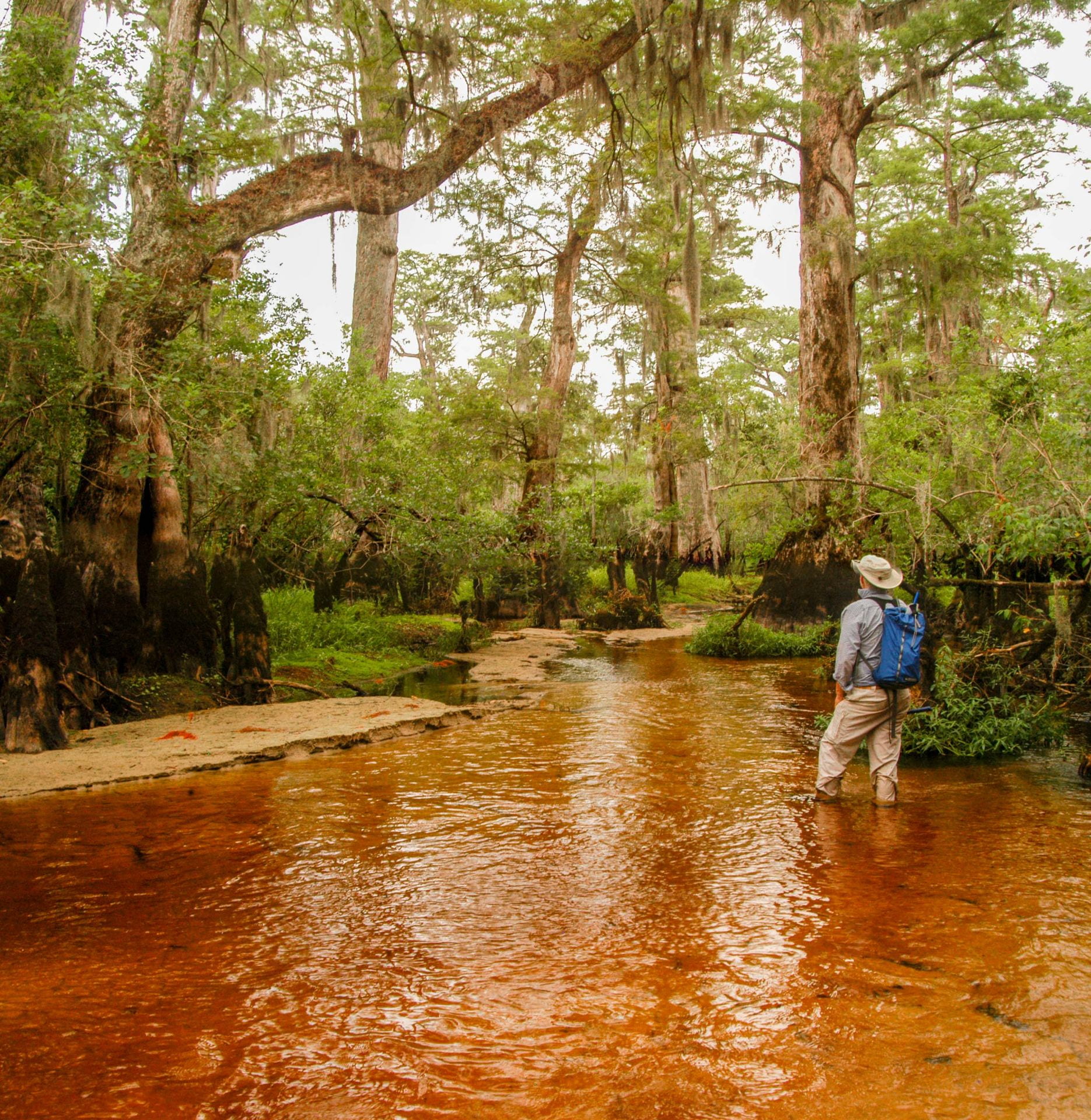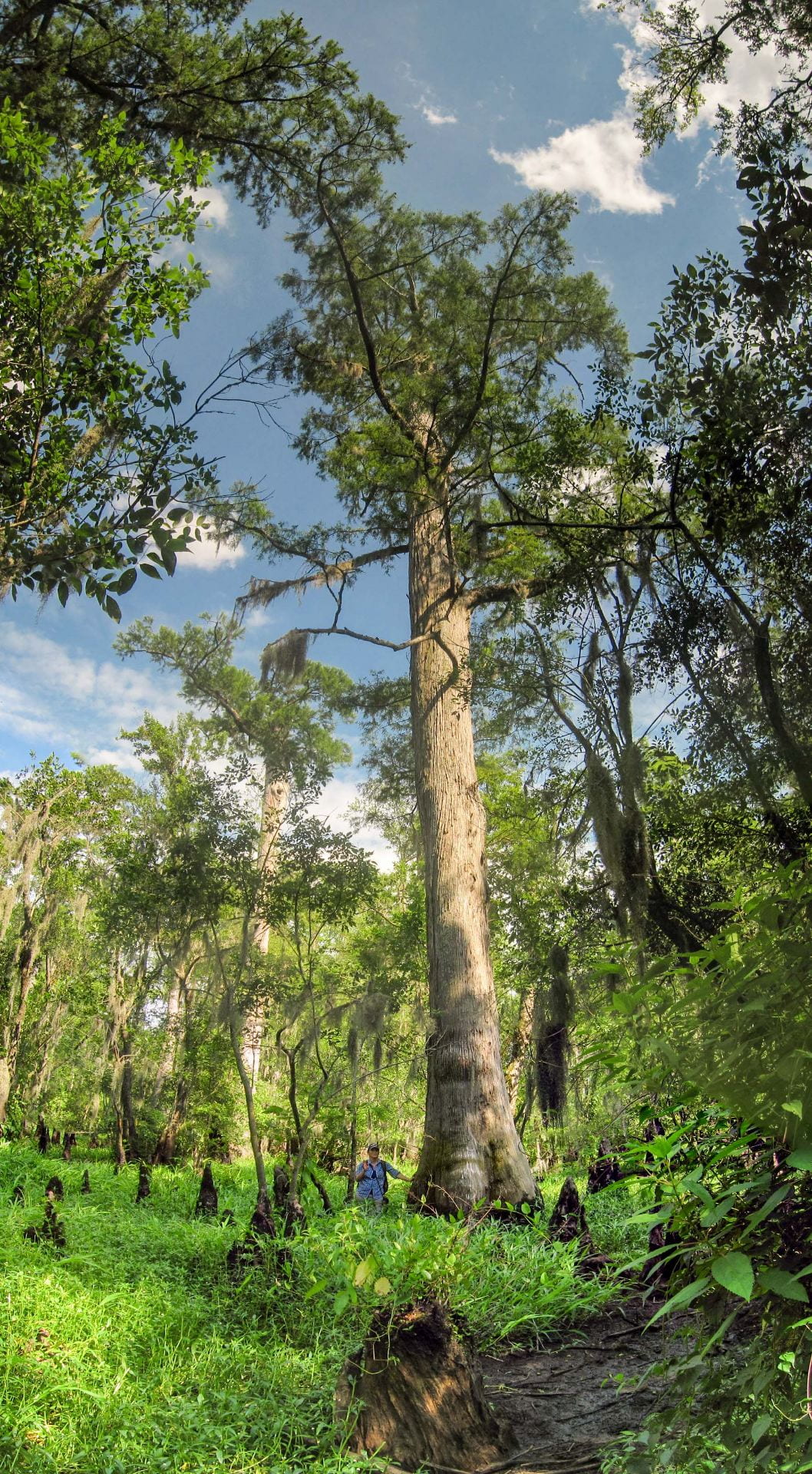Bladen, North Carolina, 2017. In a stand of bald cypress trees on a North Carolina nature conservancy, scientists discovered a tree whose leaves were tasting the moist, swampy air back when Nebuchadnezzar II was busy ascending to the throne of the Neo-Babylonian Empire, to be one of the most powerful and longest-reigning kings of Babylon’s long history.
“There are surely multiple trees over 2,000-year-old trees at Black River. It’s my belief there are some approaching, if not exceeding, 3,000 years old”, says Professor David Stahle at the University of Arkansas.
Stahle headed the research team that in 2017 began to measure the ages the the cypress trees along the banks of the Black River in southwest North Carolina in a nature conservancy called Three Sisters Swamp.
“For trees over 2,000 (years in the swamp), there would probably be 10…20 to 30,” he said. “This is one of the great old-growth forests left in the world”.
Examining a sample of one great bald cypress, and applying the techniques of a discipline called dendrochronology, the study of tree rings, researchers were able to radiocarbon date the tree back 2,624 years ago, making it the fifth oldest tree in the world and the oldest in the Eastern United States.
A total of 110 trees were sampled, and several others were also found to be at least 2000 years old.
The value of the ancient trees speaks for itself, but through dendrochronology they also act as a valuable resource in studying climate change. Their rings provide a detailed weather report going back thousands of years and can be used to help reconstruct a timeline of drought, flooding, and other climactic events.
Interestingly enough Stahle began his work in the area as part of a study on climate change in the region, before discovering that he was researching a very special forest.
PICTURED: David stands by one of the ancient bald cypress trees of Three Sisters Swamp in North Carolina.
Tree-Ring Laboratory
David Stahle runs the Tree-Ring Laboratory, an organization dedicated to helping governments around the world identify and protect ancient forests. So far their research has taken them all across North and South America.
The TRL also works with researchers studying climate change, providing in depth analysis of tree ring samples.
The TRL has assisted in the preservation of old growth remnants in the cypress-tupelo forests of the South, the oak-hickory forests of the central United States, the blue oak and conifer woodlands of California, and the conifer forests of Mexico.
However the bald cypress project was so significant to David, that he helped lead the establishment of the Ancient Bald Cypress Consortium to help raise awareness that David’s favorite old-growth forest is not only 10-times larger than he originally thought it was, but also contains some of the oldest trees on earth.
“The Private Nature Conservancy now owns 6,400 ha in and adjacent to these old-growth floodplain forests in the Black River Preserve, but thousands of additional hectares with high quality ancient forests remain to be protected. These unprotected ancient forests and the excellent water quality of the Black River are both threatened by logging, water pollution, and development,” says David in the corresponding study
“We don’t have many spots where we can sample tree rings to pick up variations over 2,000 years of climate,” Stahle said. “So where we can, we try to take advantage of them. Bald cypress is definitely a gold mine of climate information from the Southeast.”
“These world-class ancient forests, with beautiful black water flowing below, represent one of the great natural areas of eastern North America”. David released a short film in April documenting the work he’s done and what else he hopes to accomplish along the Black River.
This six-minute film describes the discovery of bald cypress trees over 2,000-years old in the forested wetlands of Black River, near Wilmington, North Carolina. Read more at: https://cypress.uark.edu
(story tip from Taylor Edwards)




